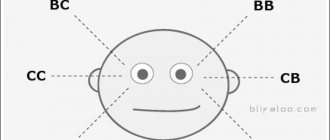A lie is a belief that a person spreads consciously, knowing that it does not reflect reality. The concept of a lie is defined by J. Mazip as a deliberate attempt to hide or fabricate information in order to create in others an opinion that the author considers false. The meaning of the word lie is closely connected with the ancient Slavic language; from it came the Old Slavonic “lie” and the Ukrainian “lie” - identical words.
To avoid deception and not become a hostage to psychological scammers, it is useful to be able to identify lies. This explains the increased interest in the mechanisms of deception today. The works of Professor Paul Ekman, who also created courses in which students can learn to identify deception by emotions in 32 hours, are extremely popular. Based on his research, the beloved TV series “Lie to Me” was also filmed.
A method of hardware testing of truthfulness was also popularized - testing on a “lie detector” device. There are 3 polygraph interview methods: civilian - 3 hours, military - 7 hours, secret service methods - still kept secret.
What types of lies are there?
- Omission: an omission, a desire to hide the truth or some details.
- Denial: unwillingness to admit the truth.
- Self-deception: Believing yourself that false information is actually true.
- Substitution of concepts: provision of false information, misinterpretation or distortion of facts.
- Exaggeration/understatement: discrepancy between information and reality.
- Gray lie: lying in accordance with one's interests.
- White lie (white lie): the desire to protect someone from a cruel truth or to cheer someone up.
- Black lies: purposeful lies that only make things worse for both others and the liar himself.
What lies at the heart of lies?
This is true: the concepts of “good” and “evil” were invented by Man himself. But Evil has a mother - the most powerful, faceless and many-faced monster - the ancient curse of Man, which has always, at all times, given birth to only one thing: EVIL.
This monster is a LIE.
It is lies, in fact, that are Absolute Evil.
We take lies very easily: well, just think, I lied a little bit... The world didn’t collapse...
- No. The world actually ended when you told a lie.
Look around you: we are, in fact, living in a collapsed world.
A world without war, devastation, millions of refugees, a world without hunger, poverty, meanness, deception... A world that can be described in three words: beauty, perfection, justice. “That’s what we lost when Man first told a Lie.”
What now?
A continuous stream of lies pouring from television screens, the media, fooling us with false propaganda and distracting us from real problems. The lies of responsible statesmen, the lies of the people’s “elected people” who instantly forget about their election promises as soon as they sit in the deputy chair...
– Isn’t this the “Big Lie” that turns a Man into a trained monkey?
And the outright lie of the highest government official of the most powerful state on the planet, waving a test tube on the podium of the most authoritative organization on Earth - isn’t this the “Great Lie”, which forced the destruction of an entire state in the name of this lie... And humanity swallowed it as “normality” - that is: by erecting accomplished Evil into the rank of Good.
We all need to understand to what dangerous level of lies we have sunk: we just have to take one more step, and the world will collapse completely.
Lies always appear under the guise of goodness, truth, and justice. And this is its terrible power. A lie blinds a person, makes him believe even the wildest nonsense and pushes him to the most monstrous acts. Lies tenderly embrace, lull with sweet flattery: “They are stupid, they are wrong. You are always right." Or shouts: “You are blind! They are enemies! Kill them!".
Remove lies from a Man’s life and the very concept of “evil” will disappear along with him.
At the heart of absolutely all atrocities in the world - from the smallest to the greatest - lies the distortion of information, lies a LIE.
For Man is controlled by information.
- But what else? After all, distortion of information appeared long before Man. A tiny bug, for example, can pretend to be a tree branch or a formidable predator. But this is initially a distortion of information, that is, in essence, it is a lie.
But no. Mimicry—pretending that a “bug” is a branch or a formidable predator—is a way for this insect to survive. And this method has undergone adaptation in nature for a huge number of years, with its uncompromising, cruel laws of natural selection. And, in the end, he merged with nature as a natural being, establishing harmonious natural connections with other natural phenomena.
And nature, which is in harmony with nature, which is in harmonious cause-and-effect relationships with other natural phenomena, can no longer be a lie, and cannot be evil. Because it does not cause destruction.
This is not a lie.
For lies always destroy established natural connections.
Man also uses distortion of information to enhance his personal survival. But, unlike the example with the “bug,” his distortion of information is not in harmony with his environment – with his society. And it brings disharmony and destruction to this society.
This is a LIE.
FALSE is a distortion of information that brings destruction to the phenomena with which this information is associated.
Ideally, Human society should be a harmonious phenomenon of reality, with clearly established harmonious connections both within society and in the relations of society with the outside world. A lie sown by a person increases his personal survival at a given point in space at a given time. But it spreads like a fan throughout society, bringing destruction into it. Moreover, the greater the distortion of information, the greater the lie, the greater the destruction it causes, the wider it spreads in society. We can even make a certain scale of the state of Man and his society, depending on the degree of lies in it:
- A little lie makes a person inadequate in relation to the object of the lie.
- A larger lie makes a person zombified in relation to a number of phenomena.
- The big lie turns a person into a real zombie and makes him jump on the Maidan like a monkey.
- The great lie forces women, children, and old people to be killed in the name of this lie.
- A universal lie will destroy Man himself.
Why do we lie
There can be a huge number of reasons why we lie. After all, a person is an infinitely complex psychological system. However, knowing the types of lies can reveal this secret and help understand the motivation and true intentions of the liar.
Protecting others
We lie if we don’t want to hurt the feelings of someone close to us. Sometimes we have to confuse others in order to maintain a secret.
Protecting ourselves
Some of us lie instinctively in an attempt to protect ourselves from pain and disappointment. However, this is quite selfish.
We benefit
We can lie in order to gain some benefit for ourselves. Energy vampires portray themselves as victims and suck the energy out of other people.
Attracting attention
Pathological liars behave in ways to gain sympathy and pity from others, as well as to attract attention to themselves.
A man who lies and deceives: quotes from literature
Quotes about lies and deception
Sometimes it is quotes from famous writers that help to understand certain definitions. For example, a person who lies and deceives - who is he? Here are quotes from literature:
- Lying is the same as alcoholism. Liars lie as they die.
This was said by Anton Pavlovich Chekhov.
- He who lies to himself and listens to his own lies reaches such a point that he no longer discerns any truth either in himself or around him, and therefore begins to disrespect both himself and others.
This is what Fyodor Mikhailovich Dostoevsky thought.
- We know very little and study poorly: that is why we must lie.
The philosopher Friedrich Nietzsche liked to say this phrase.
- The most common and widespread reason for lying is the desire to deceive not people, but themselves.
The great writer Lev Nikolaevich Tolstoy.
- To lie to yourself for your own benefit is a forgery, to lie for the benefit of another is a forgery, to lie in order to harm is slander, this is the worst harm of a lie.
Life words from Jean Jacques Rousseau.
- The liar's punishment is not that no one believes him anymore, but that he himself no longer believes anyone.
This is the truth that George Bernard Shaw brought to people.
- A lie makes a person an object of universal contempt; it is a means of depriving him of the respect and faith that everyone should have in himself.
Immanuel Kant said these words.
Why do men lie?
To avoid drama
Women are by nature more emotional than men. That's why men lie so as not to aggravate the situation.
To avoid hurting a woman's feelings
A man subconsciously puts himself at the head of the family, thereby wanting to protect his woman from worries and troubles. In this case, men lie, hoping that they are doing it for the greater good.
To hide your self-doubt
Quite often, men lie about their work, hobbies and personal lives. Thus, they want to assert themselves in the eyes of others.
Lie, deceive, tell lies: synonyms
To better know what the concepts of “lying”, “deceiving”, “telling a lie” , it is worth choosing synonyms for these words. Here are some of them:
- dissemble
- To hang noodles on one's ears
- To fool
- Fool
- Burn
- Fool
- Fool
- Cheat
- Outwit, etc.
Try to find other synonyms yourself. There are even more examples in quotes from literature. Read on.
Why do women lie?
According to a recent study, Women tell more fibs than men... honestly! Four in five say they tell a lie on a daily basis. , women are twice as likely to cheat as their partners.
Perhaps the secret lies in the peculiarities of the structure of the female and male brain. The left hemisphere is responsible for the speech abilities of men, while both of them are responsible for women. Therefore, women are able to predict the reaction of their interlocutor and say what they want to hear from them.
The motives of women's deceptions can be the same as those of men. However, there are other reasons why they lie.
To cheer someone up
Women may flatter to encourage someone, boost someone's self-esteem, or give that person confidence.
To avoid appearing vulnerable
Women are afraid of getting into trouble, so they instinctively protect themselves.
To save face
The opinion of friends or colleagues is very important for many women. Therefore, sometimes they lie to appear better than they are.
The difference between deception and lying: what is the difference between these concepts?
As in the case of lies, lying is a more critical, systematic concept. But deception can be isolated. Moreover, lies involve self-interest and, possibly, negative consequences. Deception can be one-time and even harmless. There is also a gradation of deception: self-deception, tactical deception, verbal deception, deception in the game, etc. This is the difference and difference between these concepts.
- My grandfather went to war at the age of 15. He had to give himself 3 years to be taken to the front - a single deception . So, after this incident, the protagonist’s grandfather could live a long life without ever lying to anyone again.
- Don't even think about going for an interview with this company. Their stories about high salaries and bonus systems are lies. In fact, instead, you will run around the city for days, offering everyone windows and doors from a low-quality manufacturer that no one needs. And people will swear and tell you to go to hell - all because they already know that these are scammers. And you may not get any money at all. It's all a lie .
- Of course, I fooled myself into thinking that I could sing. But when my uncle, a teacher at a music school, accidentally heard me, he said that not everything was lost - supposedly, I had a voice, but I needed to work a little on my hearing. Lies .
- I'm tired of your lies! Do you even tell the truth sometimes? This is a lie.
Below is some more interesting information. Read on.
How to Deal with a Liar
In family
If one of your relatives often deceives you, there is no need to express your complaints to his face and call him a liar. This may worsen your relationship. Don't humiliate him, but try to get him to talk. Think about why the person is telling you lies. He may need help or advice.
With baby
If you catch your child in a lie, surround him with care and trust. After all, very often children lie out of fear of being punished or misunderstood. The child should feel that he can tell you everything and that no one will judge him for it.
He needs to explain that lying is wrong and that sooner or later the truth will come out anyway. Be sure to reinforce this truth with your own example. What we learn in childhood usually stays with us throughout our lives.
With a partner
Honesty is the key to happy and trusting relationships. Discuss pressing problems together, share your emotions and experiences. This is the only way you can solve them and save the relationship.
With colleagues
If one of your colleagues is lying to you, be wary. Find out how fair the statements are, why the colleague is saying this, and what consequences deception can lead to. Once you know these details, you can decide what to do next. If you decide to talk to this person, control yourself. It is worth having a private conversation and, if necessary, asking someone for help.
Is the child lying? Rejoice!
British psychology professor Vasudevi Reddy from the University of Portsmouth believes that the ability to deceive is our serious and powerful tool for getting what we want, which develops already in infancy. For example, infants start crying, freeze to see who is coming, and then start screaming again. That is, they start crying not when they really feel bad, but simply in order to be approached and held in their arms. The result is deposited in the subconscious and gives the baby the opportunity to control adults even before he learns to think. As children grow up, they use their early learning to test what types of lies work in certain situations and learn the negative consequences of lying too much.
American writer Pamela Meyer, an expert on lying, even advises parents who are being deceived by their child not to scold him for lying, but, on the contrary, to be glad that everything is fine with his development. Meyer found that young children who are more aware of the thoughts of others and exercise more self-control begin to deceive earlier and more sophisticatedly. Both of these abilities are very important in order to function in society. Lack of insight and self-control is often associated with attention deficit hyperactivity disorder and autism.
“Therefore, if your two-year-old child is lying for the first time, you should not worry, but be happy about it,” says the psychologist.
The ability to deceive helps a person adapt to society.
Some people cannot lie under any circumstances, even if deception seems absolutely necessary to others.
Most often, autistic people and people with Asperger's syndrome are incapable of lying.
However, sometimes underneath the desire to always and everywhere tell the truth (or what seems to be the truth) hides elementary psychological sadism.
How to stop lying
If you are aware of your problem, a few tips may help you.
Find out the reason
Try to remember how, when and why you started telling lies. What are you trying to hide in this way? Lying is a certain type of addiction, which, like all others, needs to be gotten rid of. If you're afraid you can't handle this alone, ask family or friends for help.
Remind yourself of the consequences of lying
You probably chose to forget how your lies hurt someone. However, you need to recall this moment in your memory. Let it serve as a reminder of how lies can ruin relationships and ruin lives.
Admit the lies
If you catch yourself lying again, don't make excuses or make excuses. Admit it. Explain that you are now working to overcome this problem. Perhaps the very person you lied to can help you.
Don't promise the impossible
Sometimes it's difficult to admit that you can't do something, especially if you promised to do something useful and good. Just remember that your broken promises will greatly hurt the people you care about.
Pathological lies
Most healthy people lie, maintaining a logical chain and clearly understanding the goals they want to achieve through deception. At the same time, the distortion of reality is often insignificant. But there is also a so-called pathological lie. It is characterized by distortion of reality without any obvious need, in any small detail, it becomes automatic. For example, such a person tells his wife that he will come home at one time and returns at another. At work, he guarantees the completion of a task according to the agreed conditions, but does not comply with them. He lies to friends and acquaintances in order to get their attention, he lies when communicating with the opposite sex, wanting to be liked. And on this petty, already commonplace lie, his whole life is built.
Pathological lying is based on a huge need to gain attention and feel self-importance, supported by a strong fantasy. Myth-making and a keen sense of people as the audience of their lies are both a talent and a way of survival in society for a liar. He intuitively understands what everyone needs, and is ready to promise it without a twinge of conscience. Often pathological lies in words are accompanied by actions for reinforcement: for example, to create the appearance of success, a person rents an elite car or books a table in an expensive restaurant.
Pathological lies in psychology are sometimes viewed as a consequence of organic brain disorders or congenital mental illness. However, it can also be a consequence of a personality disorder. Here it is born as a way to adapt to society and is strengthened into a strategy of behavior. Most often, the reason is in the early object relations of the child and the mother, in which the mother does not accept reality and the child as he is, punishes or ignores him for natural manifestations of himself. The child learns the message from the mother: “I don’t need you the way you are.” And he begins to create his own legend, increasingly losing touch with reality. The proverb “lies and doesn’t blush” refers precisely to such liars who themselves believe in their lies. Even a lie detector often does not reveal the vegetative manifestations of such a person’s deception - he is in agreement with himself, believes in what he is inventing, and lives this story when he is trusted.
A striking example of a pathological liar is the hero of Leonardo DiCaprio in the movie “Catch Me If You Can.” This shows the classic scenario of the life of a deceiver - he receives not only benefits from his lies, but also the punishment that comes as a result of his personal deep-seated beliefs. He knows that he is lying, and tired of endless emotional overload, he unconsciously strives to be caught in a lie. The hero internally gives up, begins to make mistakes one after another and flirts with the investigator. Punishment is at the same time a release, a relief, even if it appears in the form of prison, a broken car, a broken leg...
How to work through this problem? A person must realize his lie, then he will be able to master his behavior and even partially choose the punishment, which in any case will come according to the unconscious scenario inherent in this mechanism. Such self-chosen punishments include religious penance and its analogues in secular life - charity, physical overload, self-destruction, retirement. A symptom of approaching punishment is a feeling of guilt, by tracking which you can correct the situation, including with the help of psychotechnics that allow you to talk, breathe, write, and draw the problem. And as a result, gain control over the situation.
External signs
Sometimes body language says more than words. Nonverbal communication methods are a powerful tool through which information is transmitted to others. Psychologists have compiled a number of signs that can be used to identify a liar.
Eyes and pupils
When a person tells a lie, the pupils dilate or contract. This is the body's reaction to excitement. If a liar understands that they do not believe him and is about to be exposed, his eyes “pop out of their sockets” and the pupils become round.
A shifting gaze is a sign of searching for an answer to a sensitive question. The more serious the problem, the more active the brain works, the better the general excitement is manifested. A shifting gaze is a sign of panic. A liar needs to instantly figure out how to protect himself.
Gives off an unblinking stare for too long when you need to give an answer to the question posed. A person is immersed in his thoughts, looking for answers in the subconscious. In addition, this state is characteristic of a liar who wants to understand whether they believe him or not. He peers into the eyes of his interlocutor and maintains contact for a long time. Doesn't look away, checks the partner's reaction.
Avoiding direct eye contact is also a major sign of lying. To force a liar not to lie, you should tell him: “Look me in the eyes.” Then the liar either pretends to look indifferent or cannot control his moving pupils.
Facial expressions
If you observe changes in facial expression, you can understand whether the interlocutor is lying or not, since this is where emotions are displayed. A clear sign of lying is pursed lips. This state indicates confusion and regret. The lower lip goes up, the corners of the mouth go down. The deceiver bites his lips when he has stirred up something too much. If a person is nervous, his eye begins to twitch and blinks frequently. In addition, a liar often rubs his left eyelid. Another clear sign of lying is a change in complexion. The skin turns pale or red.
Hand gestures
According to scientific information, in order to recognize a lie, you need to carefully observe the movement of the left side of the interlocutor’s body. What a person wants to demonstrate, he will show with his right side, and hide with his left. When a partner actively gestures with his right hand, he distracts attention and masks the true state of affairs. Other signs:
- Crossed arms are a sign of discomfort and protection from others. This gesture does not always mean the partner’s intention to deceive. When such a pose appears as a reaction to a question asked, it is worth thinking about. This is a signal of insincerity. The interlocutor blurted out the phrase and immediately crossed his arms over his chest.
- The “I don’t know” gesture with arms spread to the side is a classic manifestation of lack of information. When the opponent answers in the affirmative, and his shoulders rise and his arms move to the side, this indicates his uncertainty.
- Hands in pockets indicate the interlocutor’s desire to hide and avoid answering.
- Continuous gesticulation with hands, a desire to touch the ear, nose, mouth are also considered as a clear sign of deception.
A calm and confident person holds his hands in front of him, does not swing them in different directions, and does not hesitate to show open palms.
Body Gestures
You can expose a lie by body movement and posture:
- Step back. The deceiver reacts automatically. Subconsciously there is a desire to increase the distance. After an untruthful answer, the partner takes a step back. This gesture indicates discomfort. Skilled liars have excellent control over their body, so after an outright lie they do not back away, but an inexperienced liar can easily be exposed.
- Turning to the side (right, left) indicates the interlocutor’s desire to hide faster. The vector of direction of movement is subconsciously determined. It is not the body that can turn, but the head, but the meaning of the gesture remains the same. The desire to hide arises in response to discomfort.
Physiological manifestations of lying: increased heart rate, increased sweating, stuttering, changes in blood pressure, increased pulse. Symptoms can manifest in different ways. Experienced liars know how to hide their inner discomfort.
Read also
Part 1. What is a lie
Part 1. What is a lie? From this part of the book you will learn what humanity owes to deception, how our brain reacts to lies and lies; we will define deception, consider the main signs and strategies
What is a lie
What is a lie? We can easily find the answer to this question in the explanatory dictionary. S.I. Ozhegov explains this concept as follows: “Intentional distortion of the truth, untruth, deception.” However, he further cites phrases such as “white lies” and “holy lies.” This makes me think
Bottom line
Is lying bad or good? People often answer this question unequivocally with the word “no.” However, facts show that, despite the negative attitude towards lying, absolutely all people resort to it. The bottom line remains the same: deception has existed and will continue to exist.
Since being deceived is unpleasant, a person will continue to study the question of how to recognize a lie. This is a completely normal desire, since there is no escape from deception. At the same time, people improve their skills in lying when they themselves can mislead someone in order to gain some benefit or achieve a goal.











